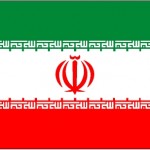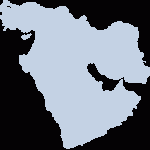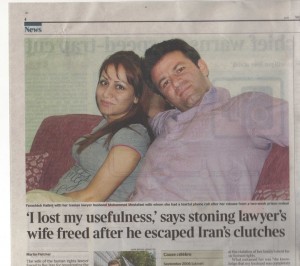
1830 GMT: Your Belated Friday Prayer Update. Ayatollah Ahmad Jannati, head of the Guardian Council, tried to bounce back from a recent rough patch --- you know, the $51 billion US-Saudi-opposition plot episode --- by
taking the podium.
Lots of banter about bad America, but no apparent big numbers today, before Jannati laid down the reassurance that everyone was accountable in the Iranian system: "If you don't serve the people, they will not trust you and not vote for you. If they have committed the error to vote for you, they will take back their votes."
1825 GMT: The Battle Within. Mohammad Hashemi, member of the Expediency Council (and brother of former President Hashmei Rafsanjani),
has declared that the President's duty is to implement laws, not to interpret them --- saying that he doesn't accept a law is illegal and outside of his duties.
1815 GMT: Ahmadinejad, Unifier-in-Chief. Declaration of the day comes from the President, who
told Algerian counterpart Abdelaziz Bouteflika in a Friday telephone call that unity among Muslim nations will lead to the elimination of inequality and oppression everywhere.
1310 GMT: Black Economy Watch.
Iran Focus claims that a leaked internal Islamic Revolution Guards Corps report confirms the IRGC is running a major smuggling network from the southern Iranian island of Qeshm in the Strait of Hormuz at the mouth of the Persian Gulf.
The report also says that the IRGC is building a large base at Roudkhaneh Sarbaz in the southeastern province of Sistan and Baluchistan as part of smuggling, including drugs, from Pakistan.
1300 GMT: The Nuclear Plant.
Russian officials say that, after repeated delays, nuclear fuel will be loaded from 21 August into Iran's reactor at Bushehr.
Russian and Iranian specialists will spend 2-3 weeks putting uranium-packed fuel rods into the reactor:
"This will be an irreversible step," Sergei Novikov, a spokesman for Russia's state nuclear corporation, Rosatom, said. "At that moment, the Bushehr nuclear power plant will be certified as a nuclear energy installation."
Novikov said the first fissile reaction would take place in early October.
The Bushehr plant is monitored by the International Atomic Energy Agnecy and has no link with Iran's uranium enrichment programme. Tehran has agreed to return spent fuel to Russia.
1200 GMT: Parliament v. Government. MP Mehrdad Lahouti
says the demand for impeachment of agriculture minister Sadegh Khalilian, with 22 signatories, will be handed over to Parliament on Sunday when it returns from summer vacation. The allegation is that Khalilian has inflicted heavy damage to domestic agriculture and caused severe irregularities in the sector.
Ahmad Tavakoli, speaking about the President's refusal to accept Parliament's authorisation of $2 million for the Tehran metro,
has said that Ahmadinejad is "dictatorial in his decisions", breaking the law and the Constitution.
1145 GMT: Execution Watch ---Germany Gets Vocal (cont.).
According to Die Welt , an (unnamed) official of Germany's Foreign Ministry has demanded the cancellation of the death sentence Sakineh Mohammadi Ashtiani.
1000 GMT: In Afghanistan. The Washington Post claims --- probably from a US Government official ---- that a "human intelligence asset", in a report for Afghanistan’s domestic intelligence agency, has said that Iran has supplied fresh batteries for about three dozen shoulder-fired SA-7 missiles stockpiled by Taliban forces in Kandahar, in anticipation of a U.S. attack. The Post adds a note to the dramatic claim:
Any reports linking Iran to the Afghan conflict must be viewed with caution. A previous intelligence report, surfaced by WikiLeaks, describing a 2005 missile-buying mission to North Korea by rebel leader Gulbiddin Hekmatyar and a senior aide to Osama bin Laden, is now suspected of having been fabricated by elements in Washington or elsewhere who wanted to implicate Iran in the Afghan insurgency.
0900 GMT: Execution Watch --- Germany Gets Vocal. Leading Free Democrat politician Rainer Stinner, who visited Iran from 31 July to 3 August,
has said that not only Tehran's sentences to death by stoning but its entire legal procedure are flagrant violations of human rights. He claimed that Iran cannot pretend this is a domestic affair, as it has ratified the International Human Rights Convention, and it is isolated by such practices.
The statement is a significant modification of the "live and let live" approach of the Free Democrats towards Iran in the 1990s.
0815 GMT: The Battle Within. Mehdi Khalaji, summarising many of the events covered by EA in recent weeks,
writes an analysis for the Washington Institute on Near East Policy, "Internal Divisions among Iranian Hardliners Come to the Fore".
0755 GMT: International Affairs Update. Yesterday we noted the British Ambassador's diplomatic response to 1st Vice President Mohammad Reza Rahimi's rather un-diplomatic remarks about "England". We cited
The Daily Telegraph as the source, but we have learned that the original story was by Martin Fletcher
in The Times of London.
0715 GMT: US-Iran. We have posted
a separate analysis by Greg Thielmann on the latest US intelligence and Iran's nuclear programme.
0710 GMT: Execution (Ashtiani) Watch.
Human Rights Activists News Agency has more information on Wednesday's "confession" on Iranian state television by Sakineh Mohammadi Ashtiani, condemned to death for adultery and then complicity in murder of her husband.
The New York Times, in an article by William Yong and Robert Worth, has also picked up on the article.
The Guardian of London reports that the execution by stoning sentence of Mariam Ghorbanzadeh, who allegedly miscarried after being beaten up in Tabriz prison this week, has been changed to hanging in a rapid judicial review.
0700 GMT: You Can't Go Home Again.
Tehran has set new restrictions on Iranian expatriates coming into the country.
Mohammad Sharif Malekzadeh, head of the High Council of Iranian Expatriates, said Wednesday that Iranians residing abroad can return for academic reasons only after being approved by certain institutions. Asked if the "Iranian expatriates with political problems" who want to return would face any difficulties, Malekzadeh said that "certain institutions will do their duties in this regard".
0655 GMT: Sanctions(-Busting) Watch.
Officials say recent UN Security Council and unilateral sanctions will not affect the €18 billion gas contract between the Swiss energy group EGL and the National Iranian Gas Export Company (NIGEC).
According to Fars News, Turkey's Energy Minister has said Ankara will respect its €1 billion deal wfor the construction of a 660km pipeline to transfer Iran's gas supplies to Europe.
The minister also reportedly said that Iran and Turkey will continue plans for the joint construction of power plants with a total capacity of 6,000 megawatts. And another minister has supposedly confirmed that Turkey paid Iran a $600 million fine for failing to import natural gas at the amount previously agreed between the two countries.
0645 GMT: Sensitive Journalism of the Day. The headline in
Keyhan in an article on US Secretary of State Hillary Clinton’s recent remarks on human rights abuses in Iran: "
Bill Clinton's Slave Defending the Murderers".
0640 GMT: All the President's Men.
More on President Ahmadinejad's defence of his controversial chief of staff, Esfandiar Rahim-Mashai, against criticism from clerics, members of Parliament, and even Iran's top military commander:
There is an abnormal sensitivity against Mashai....I fully trust him....If someone has any criticism or believes what he says is wrong, he should invite Mr. Mashai to speak with him and even debate with him. Why all this row? Some want to change the issues of our enemies, illegal sanctions and enemies at home into secondary issues....
0630 GMT: International Affairs.
Khabar Online writes of possible problems between the Foreign Ministry and the Government because the President's office is taking over the appointment of ambassadors.
(This is far from a new development, as Ahmadinejad's staff pushed out many Iranian ambassadors soon after thge 2005 election. What is interesting here is that Khabar would highlight this and the timing: only yesterday EA's Scott Lucas spoke with
The National about Foreign Ministry disquiet over un-diplomatic statements by the President and 1st Vice-President Rahimi.)
0625 GMT: Economy Watch. MP Musalreza Sarvati has challenged the Minister of Works in Majlis that
the official unemployment rate of 14.6% is untrue: "employed" includes people who work 1 hour per week and others who work 100 hours without being able to earn a living.
Sarvati claimed that every year 1.1 million new jobseekers are added in Iran.
0615 GMT: The Cleric's Apology. Ayatollah Dastgheib's
has replied to a letter of prisoner families: "I, for my part, apologise for not being able to follow your pledges for justice."
Dastgheib warned Iran's ruling class they are "going the wrong way", asking them to "sit down for once" with a group of the people's representatives and senior clerics without harrassing them to explain the reasons for arresting the so-called "uproarers".
Dastgheib's message to these leaders? "This situation will pass, but your deeds will be documented by God and history."
0545 GMT: Friday is expected to be quiet in Iran, as the holy month of Ramadan begins, but news arrives that the head of the judiciary, Sadegh Larijani, has more work in his in-box....
The reformist Mosharekat (Islamic Iran Revolution) Party
has demanded that the High Court to investigate the files, submitted by seven political prisoners and including a claimed audio proving manipulation by the Revolutionary Guard, of a rigged election:
The wide distribution of a tape of commander Moshfegh's speech, a high official of [Revolutionary Guard] Sarollah Forces, has proven the claims of Green leaders on the manipulation of 10th presidential elections. This person, who boldly and crudely describes the organisation of the putsch intoxicated by power, openly confesses to actions, which cannot be named other than a putsch according to all political schools of the world.
Families of former hunger strikers, having gone three days without news, have written Larijani: "
Have our beloved outlived the hunger strike?"
The families of political prisoners
have also asked Tehran Prosecutor General Abbas Jafari Doulatabadi:
How can we be sure of the physical condition of our lovedones after two grueling weeks of hunger strike? The only way we can be reassured of their well-being is if we are given the opportunity to hear their voices, if they are transferred back to the general ward at Evin (Prison), and when we are finally given permission to visit with them.
Students of three Tabriz univerisities
have appealed to Larijani that it is time for him to break his silence in the face of major corruption committed by the "ruling body" of Iran. They complain about the lack of justice and the judiciary's independence, with silence amidst unpunished bloodshed, slander, insults, and lies.
 Tuesday, August 17, 2010 at 7:54
Tuesday, August 17, 2010 at 7:54  Arabs' 'Nuclear-Free Region' Insistence: Only three months ago, a nuclear-free Middle East was a stated aim of the United Nations Nuclear Non-Proliferation Treaty (NPT) conference. It was backed by the US Government. Then President Obama made it clear that his Administration would not question Israel's nuclear programme when Prime Minister Benjamin Netanyahu was hosted in the White House.
Arabs' 'Nuclear-Free Region' Insistence: Only three months ago, a nuclear-free Middle East was a stated aim of the United Nations Nuclear Non-Proliferation Treaty (NPT) conference. It was backed by the US Government. Then President Obama made it clear that his Administration would not question Israel's nuclear programme when Prime Minister Benjamin Netanyahu was hosted in the White House. Arab League,
Arab League,  Benjamin Netanyahu,
Benjamin Netanyahu,  Dan Meridor,
Dan Meridor,  East Jerusalem,
East Jerusalem,  Ehud Barak,
Ehud Barak,  European Union,
European Union,  International Atomic Energy Agency,
International Atomic Energy Agency,  Israel,
Israel,  Mahmoud Abbas,
Mahmoud Abbas,  Nuclear Non-Proliferation Treaty,
Nuclear Non-Proliferation Treaty,  Nuclear Nonproliferation Treaty,
Nuclear Nonproliferation Treaty,  Obama Administration,
Obama Administration,  Palestine,
Palestine,  Palestinian Authority,
Palestinian Authority,  Philip J. Crowley,
Philip J. Crowley,  Quartet,
Quartet,  Russia,
Russia,  United Nations,
United Nations,  West Bank in
West Bank in  Middle East & Iran,
Middle East & Iran,  US Foreign Policy,
US Foreign Policy,  Uncategorized
Uncategorized  Arab League,
Arab League,  Benjamin Netanyahu,
Benjamin Netanyahu,  Dan Meridor,
Dan Meridor,  East Jerusalem,
East Jerusalem,  Ehud Barak,
Ehud Barak,  European Union,
European Union,  International Atomic Energy Agency,
International Atomic Energy Agency,  Israel,
Israel,  Mahmoud Abbas,
Mahmoud Abbas,  Nuclear Non-Proliferation Treaty,
Nuclear Non-Proliferation Treaty,  Nuclear Nonproliferation Treaty,
Nuclear Nonproliferation Treaty,  Obama Administration,
Obama Administration,  Palestine,
Palestine,  Palestinian Authority,
Palestinian Authority,  Philip J. Crowley,
Philip J. Crowley,  Quartet,
Quartet,  Russia,
Russia,  United Nations,
United Nations,  West Bank in
West Bank in  Middle East & Iran,
Middle East & Iran,  US Foreign Policy,
US Foreign Policy,  Uncategorized
Uncategorized 



